National Awards for University Teaching
The Australian Awards for University Teaching (AAUT) celebrate the nation’s most outstanding university teachers who have made a significant contribution to enhancing the quality of learning and teaching in higher education. These prestigious awards are highly competitive with an honour roll of outstanding educators spanning more than twenty years. Established by the Australian Government in 1997, these national awards for university teaching are currently administered by Universities Australia. The categories of awards include:
- Citations for Outstanding Contributions to Student Learning (Citations)
- Awards for Teaching Excellence (Teaching Awards)
- Awards for Programs that Enhance Learning (Program Awards)
Nominations for these awards are made by institutions not individuals.
Contact curriculum.quality@nd.edu.au or more information.
2022 Award Winners
2022 Australian Awards for University Teaching Citation for Outstanding Contributions to Student Learning recognises the deep commitment to inspiring both students and colleagues.
Congratulations to our Awardees.
Dr Sagar Athota and Associate Professor Sean Kearney (Team)
School of Law & Business, School of Education
For the creation of an international immersion program that enhanced student learning and employment opportunities and a global partnership for sustainable educational and developmental goals.
Based on nine years of leading international immersions to Tenali India, a charitable foundation has been established that provides educational opportunities for at-risk and in-need children in India while also establishing a mechanism for students from the UNDA to volunteer and broaden their knowledge of the global socio-political and cultural environment; improve their academic engagement and leadership skills; and increase their future employment opportunities.
The purpose is underpinned by the United Nations Sustainable Development Goal Five, ensuring inclusive and equitable quality education and promoting lifelong learning opportunities. The program and partnership were developed in consultation with the community in India to provide high-quality education to underprivileged children by affiliating with UNDA volunteer students, who spend three to four weeks in the community learning about structural challenges of poverty, discrimination, and the power of education to reverse these cycles.
As a result of the immersion, the students not only return to Australia with an appreciation for the benefits of compulsory primary education but also understand the significance of their learning and formal education. The number of students wanting to participate has doubled over the past eight years; however, the number of participants is limited by the number of New Colombo Plan (NCP) grants available. Over nine immersion programs, including late 2022, over 150 student volunteers have participated. We received over 50 applications for the current program for the twenty available grants. Continually enhanced by informal feedback from students and the Indian community as well as participant-based research, the program is responsive to the needs of the community and students, using innovative pedagogies as the driver.
The program's longevity and the partnership's actual value are evident in the collaboration between the Australian not-for-profit (NFP) organisation and the staff and students who have participated in the immersion each year. The first immersion in 2014 laid the groundwork for creating the NFP, which runs strong today.
2021 Award Winners
-
Dr Ben Piggott
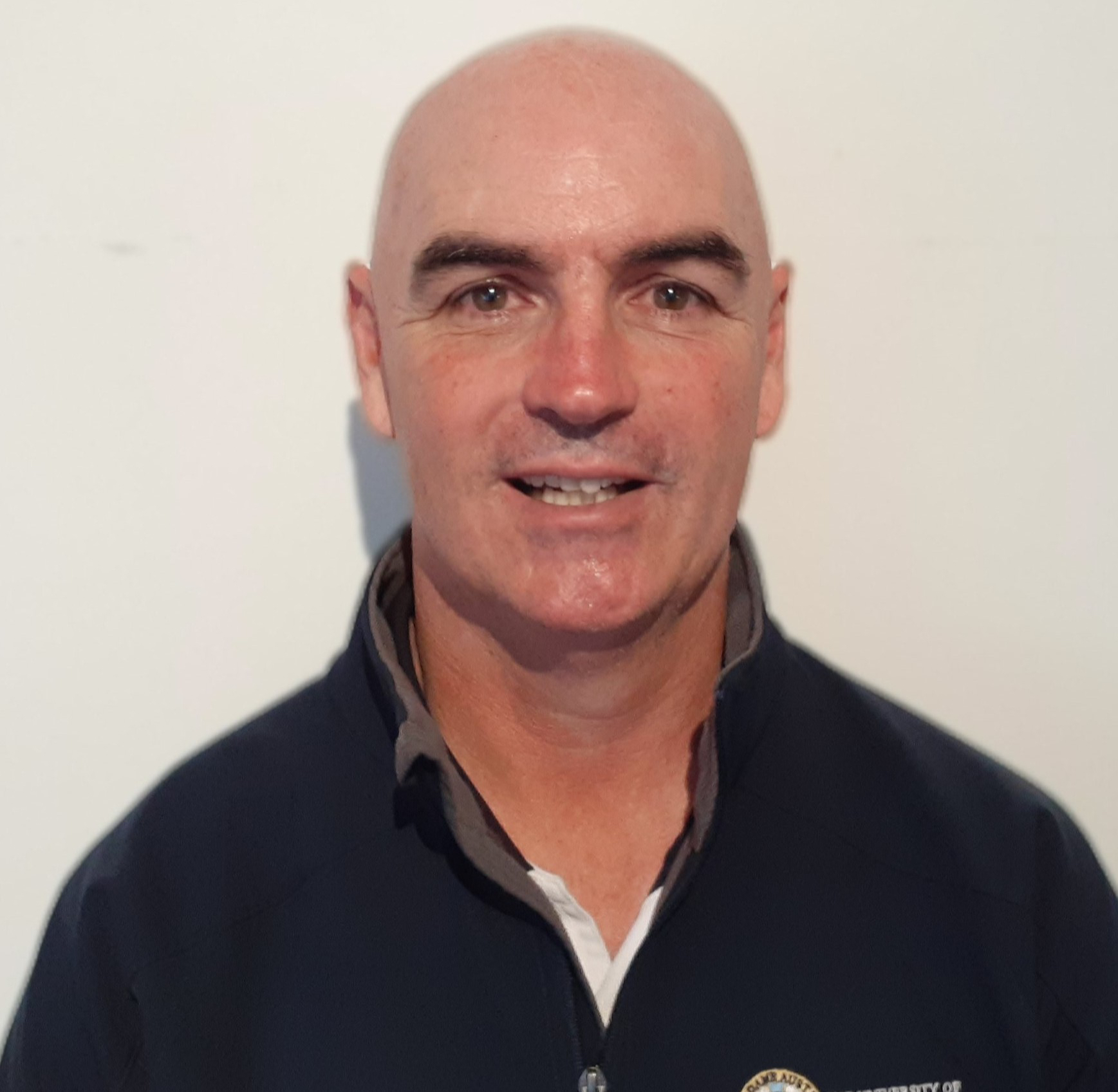
Dr Ben Piggott
School of Nursing and Midwifery, Health Sciences & Physiotherapy
For sustained best practice in promoting a social justice perspective, highlighting inclusive practice as a critical attribute of pre-service teachers.Ben has been teaching and providing pastoral care to students studying health related curriculum at the University for over 12 years. He has shared his expertise through the Health & Physical Education (HPE) degree, shepherding his students towards optimal academic, personal and professional success. The emphasis he places on social justice and inclusive practice is instrumental in providing students with unique opportunities for success. His commitment to social justice is centred on the notion that education of high quality should be provided universally in such a way as to be equally available to all. The impact of his promotion of a social justice perspective and advocacy for inclusive practice reaches beyond enrolled students, to the students, staff and families of the schools who participate in the program and furthermore, the organisations that pre-service teachers engage with post-graduation.
-
Dr Shannon Saad, Dr Cassandra Richmond and Dr Sarah White (Team)
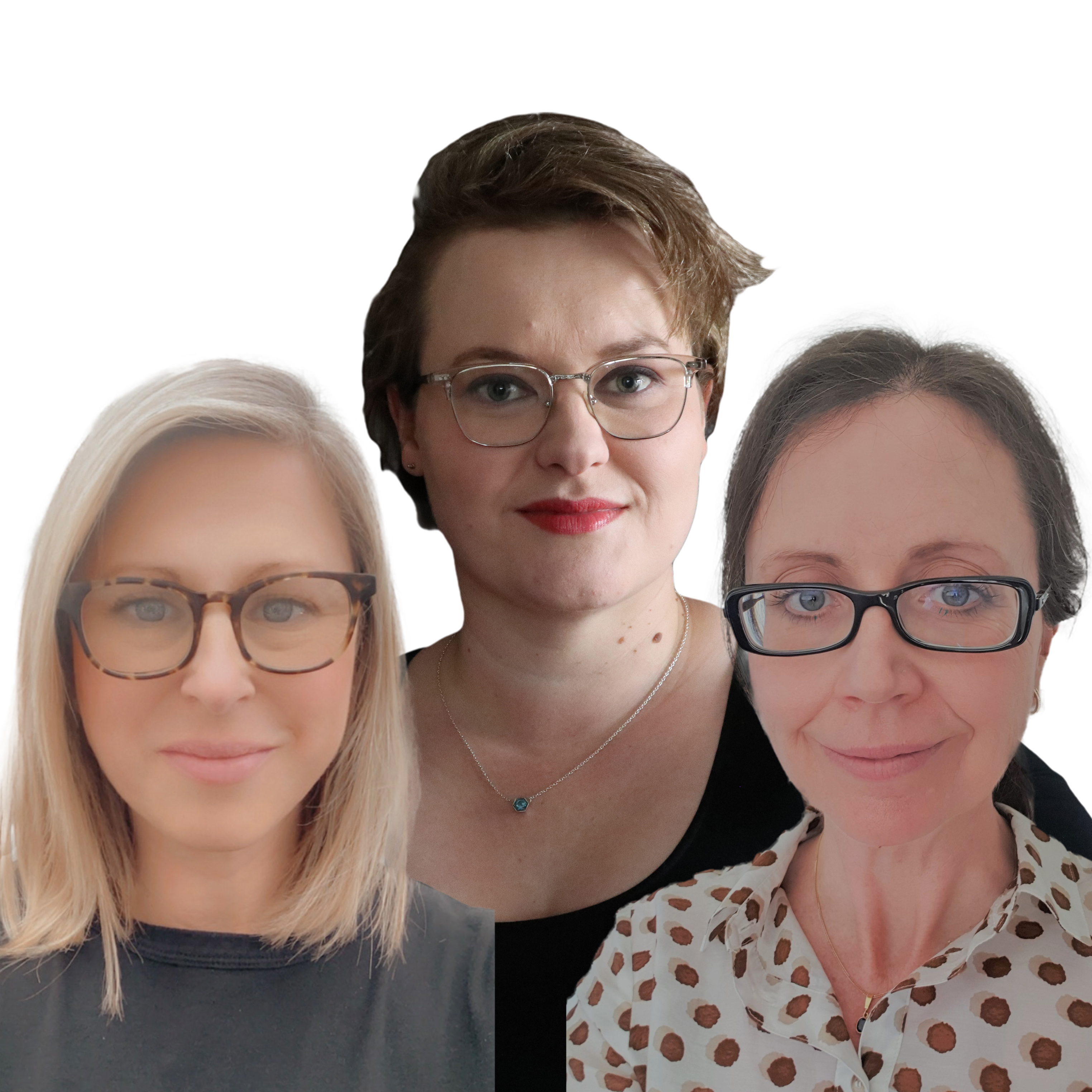
Dr Shannon Saad, Dr Cassandra Richmond and Dr Sarah White (Team)
School of Medicine
For sustained and exemplary longitudinal integration of an evidence-based communication skills curriculum in medicine to enrich medical student learning and enhance future healthcare deliveryIn a medical school curriculum, communication skills teaching is of unique importance in ensuring that students develop necessary consultation skills for the delivery of safe and collaborative healthcare upon graduation. Since 2015, the Clinical Skills Team have taken a sustained and scholarly approach to designing a tailored communication skills curriculum which aligns with best practice. The new, evidence-based curriculum has been embedded within clinical learning activities at the School and involves enriched experiential learning in simulated consultations with an aligned feedback model. Further, the assessment strategy has been adapted to include specific interrogation of communication skills demonstration by students. The actualisation of the new teaching model has involved a phased design and implementation process over a 5-year period, including the consultation and upskilling of stakeholders from the wider School community. This has involved medical academics and clinical teachers from our seven dispersed clinical schools, totalling more than 300 educators. The new curriculum, based on the Calgary-Cambridge Model of the Consultation, is now delivered to all four years at the school, including over 400 students to date. Their work has been recognised and disseminated nationally and internationally and resulted in measurable and sustained improvements in our students’ communication skills performances.
-
Prof. Carole Steketee, A/Prof. Kathie Ardzejewska, Dr Jenny Pizzica, Dr Alison Casey, Inna Geoghegan and Lyn Marks (Team)
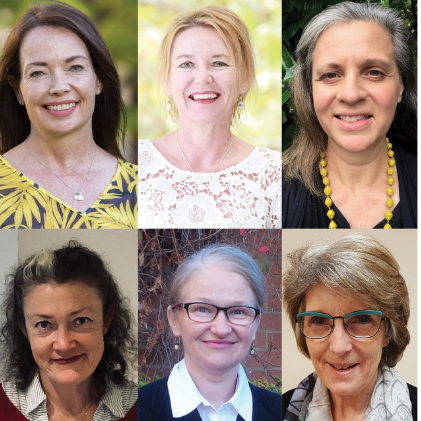
Prof. Carole Steketee, A/Prof. Kathie Ardzejewska, Dr Jenny Pizzica, Dr Alison Casey, Inna Geoghegan and Lyn Marks (Team)
Learning and Teaching Office
For the stewardship of a scholarly approach to fostering a culture of reflective evidence-based practice that enriches our students’ learning experiences across all campusesStudents rate their learning and teaching experience at the University of Notre Dame, Australia (ND) as amongst the highest in the country. The Learning and Teaching Office (LTO) has supported Schools in achieving this success, fostering a shared cultural mindset of excellence in learning and teaching, inspiring and motivating educators to achieve best practice and creating expectations that being an educator is a profession with accompanying professional standards. Important to the LTO’s approach is Taylor’s (2005) contention that for learning and teaching centres to be valued, they must meet the needs of the organisation at the individual, departmental and institutional levels. The LTO meets this need through a combination of innovation, leadership, and scholarship informed by robust evidence-based evaluation. Formed in 2015, the LTO is now positioned as an advocate and change agent, shaping the teaching and learning agenda of the University, influencing and enhancing learning and teaching practices in order to enrich our students’ experiences. The Office has achieved this with a small team who work across three campuses and two states. The impact and practice of the LTO is acknowledged by colleagues in the sector as “inspiring”, “transformative” and “creating meaningful engagement that rarely exists elsewhere.”
2020 Award Winners
-
Dr David Wong

Dr David Wong
School of Business
Citation for Outstanding Contributions to Student Learning
David’s inspiring work combines innovative face-to-face approaches with scholarly and considered uses of technology to provide sustained exemplary student learning experiences. His scholarly approach to undergraduate teaching incorporates storytelling, peer teaching and work integrated learning. In recognition of his outstanding performance and impact on student learning, he has also received the Vice Chancellor’s Letter of Commendation for teaching excellence for eight consecutive semesters and a Vice Chancellor’s Award for Teaching Excellence in 2020. -
Gillian Kennedy and Anna Dwyer
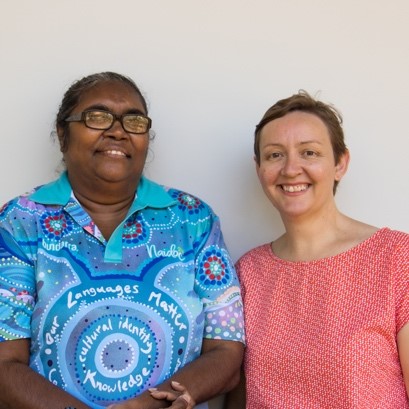
Gillian Kennedy and Anna Dwyer
Nulungu Research Institute
Citation for Outstanding Contributions to Student LearningGillian and Anna’s work in the course, Aboriginal People: The Silent History has fostered a transformative ‘third space’ cultural learning experience through immersion on Yawuru and Karajarri Country. Their model of teaching by learning through culture and experience gives students an indelible experience of an alternative world view. Evidence collected over the past five years has shown that the course has had a significant impact on student learning and has inspiring alumni to take action in their own communities and workplaces. In recognition of their extraordinary impact on student learning, they also a Vice Chancellor’s Award for Initiatives that Enhance Student Learning in 2018.
-
Associate Professor Michael Wan
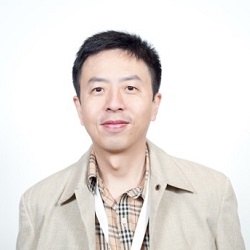
Associate Professor Michael Wan
School of Medicine
Citation for Outstanding Contributions to Student LearningWith more than 30 years of teaching experience, Michael epitomises sustained and exemplary leadership in learning and assessment in medical education.He has been instrumental in enhancing student learning experiences in clinical reasoning through the innovative use of Script Concordance Test (SCT) and he has developed innovative online modules to enhance student engagement and learning through immediate feedback. His contribution to research and scholarship has been recognised with numerous invitations to lead national and international workshops, panels and conferences. He has also received the Vice Chancellor’s Award for Teaching Excellence in 2011, a an Australian National (OLT) Citation in 2012 and the Vice Chancellor’s Award for Initiatives that Enhance Student Learning in 2020.
2019 AAUT Awardees
-
Dr Benjamin Hay
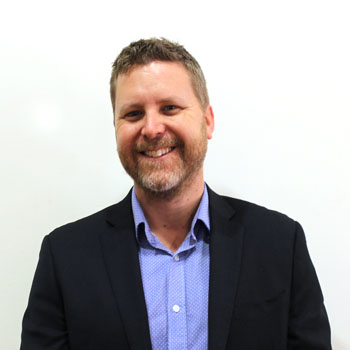
Dr Benjamin Hay
School of Nursing and Midwifery – Citation for Outstanding Contributions to Student Learning
The award winning SMARTcare seminar series encourages a novel and unique approach to the responsible use of social media and mobile technology, by engaging ‘students as partners’ for mentoring others and providing ongoing leadership and engagement by industry experts and academics. SMARTcare focuses on enhancing student learning and engagement through coupling SMART technology such as smartphones and social media, with health topics and pastoral care. That is, Social Media Application/s for Research and Teaching (SMART), links with Nursing’s core role as a caring profession and with Notre Dame’s commitment to pastoral care. Four highly successful biennial SMARTcare seminars in 2013, 2015, 2017 and 2019, have developed into fully-fledged partnerships between faculty, the student body, and industry. Enhancing the student experience, students are partners and mentor their peers in the planning stages between each seminar, which results in high engagement and involvement in the learning. SMARTcare clearly demonstrates the capacity to draw students and industry together not only for the mutual benefit of future employment, but also for the current, accurate, supportive and professional engagement that experienced industry professionals model to the next generation of graduates. -
Sean Kearney
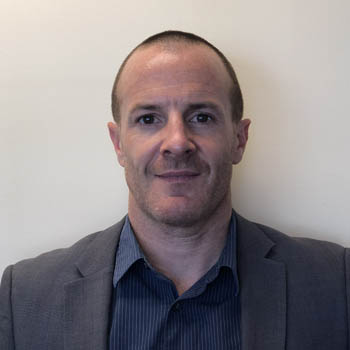
Sean Kearney
School of Education - Citation for Outstanding Contributions to Student Learning
The development of the Authentic Self and Peer Assessment for Learning (ASPAL) model was an idea that emanated from ALTC Assessment Futures project (Boud & Associates, 2010) and the seminal work of Black and Wiliam (1998) and was created and implemented in 2010 at the University of Notre Dame Australia, Sydney. ASPAL assists students’ understanding of tertiary assessment practices by inviting them to be part of the assessment process and to reflect on their own learning. While the idea emanated out of teacher education, in the ten years since its inception, ASPAL has much broader applications and has been used in disciplines including, but not limited to, Business, Psychology and Engineering. It has also been used in Australian primary and secondary schools in NSW and internationally. The model involves a multi-week process that can be easily scaffolded and replicated. It incorporates content knowledge, authentic skills, reflective thinking and evaluation and allows for timely and triangulated feedback and results for students. The journey from fledgling idea to an innovative assessment model that has been used by thousands of students between 2010 and 2019 with notable success aims to improve engagement and autonomy through self-assessment and, as a by-product, improve achievement, or at the very least, improve the student experience in regards to assessment and learning. -
RELATE Team - Dee O’Conner, Christine Robinson, Tracy Treasure, Linda Cranley and Samantha Wynne
RELATE Team - Dee O’Conner (Team Leader) Christine Robinson, Tracy Treasure, Linda Cranley and Samantha Wynne
Citation for Outstanding Contributions to Student Learning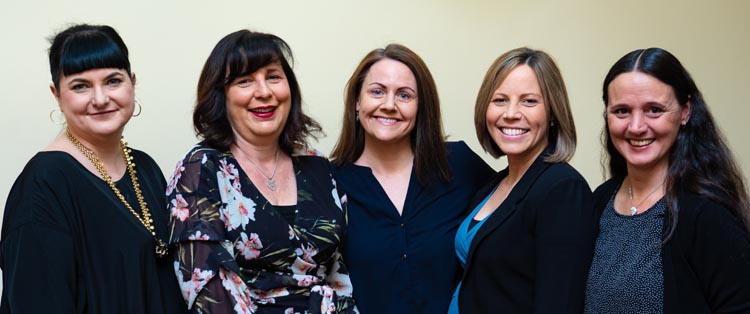
(L-R) Samantha Wynne, Linda Cranley,Dee O’Conner (Team Leader), Christine Robinson, Tracy TreasureIn 2013, following Early Childhood Education and Care (ECEC) faculty meetings wherein ontological differences within core ECEC pedagogies and philosophies were discussed, the ECEC faculty team decided to form a collaborative group called RELATE (Researching Early Learning and Teacher Education). The aims of RELATE were to support discipline cohesion, to learn from each other and to engage in constructive activities to enhance the collective nexus between scholarship and teaching. The vision was greater alignment between evidence and curriculum design, greater team cohesion and unity through dialogue and greater connection and responsiveness to the student voice. The proposal was to work together collaboratively within scholarship and research in a collegial effort to better appreciate the differences and learn to value or bridge them within an integrated and embedded shared philosophy. The ECEC faculty all fully embraced this initiative and every member has contributed greatly to the process and its outcomes. The RELATE Initiative has served to build better programs, develop reflective capacity, progress collaboration and positively impact on the student experience through improved consultation, teaching, learning and engagement. The team have used its scholarship to actively inform four programmatic reviews within ECEC since 2013 embedding best practice and cutting edge evidenced based content within every aspect of their programs.

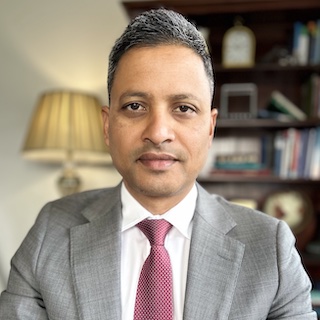
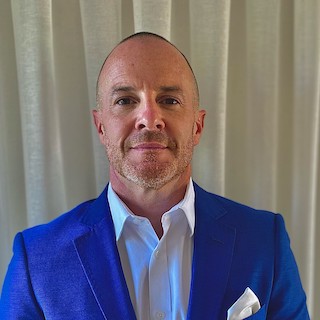
Connect with Notre Dame on Social Media
Australia
Fremantle
Broome
Sydney